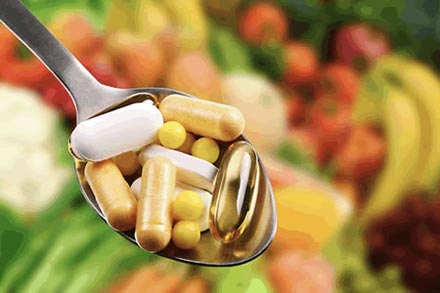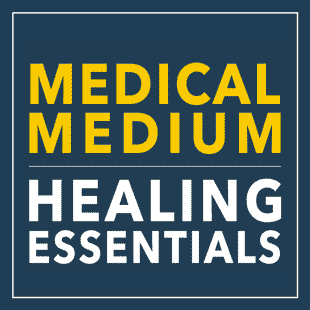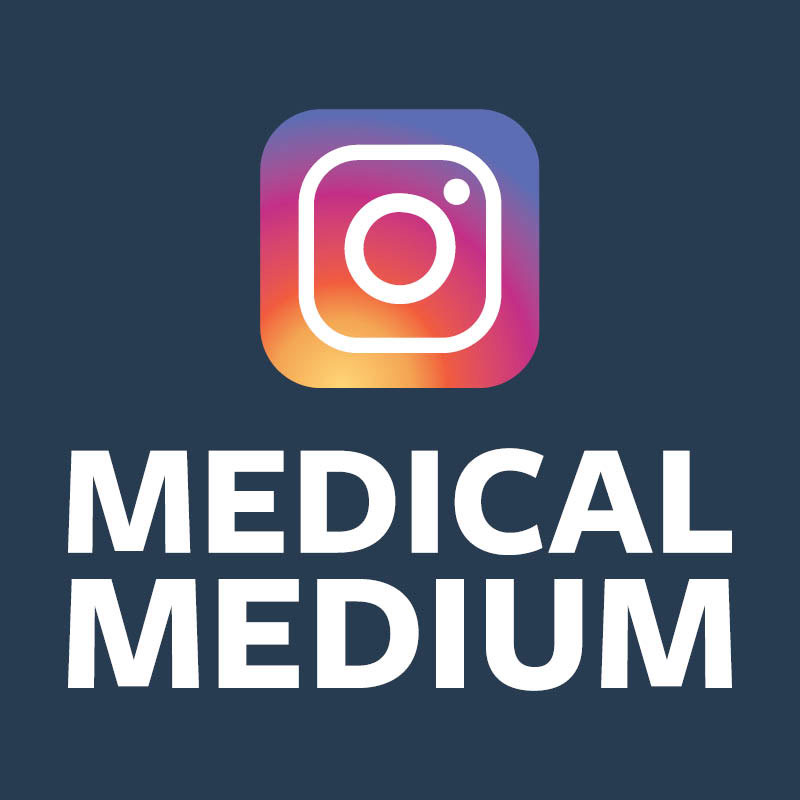Watch: Are Supplements Necessary?

Are Supplements Necessary?
Hundreds of packaged vitamins, minerals, and other seemingly critical nutrients line the aisles of supermarkets, health food stores, and pharmacies around the world. Thousands of claims promoting various supplements are splashed across television screens and magazine pages leaving you overwhelmed and confused. You may wonder which supplements you actually need, or puzzle over five different brand options. You may begin to question whether supplements are even necessary or just an expensive waste of money. The information below and in the radio show above is intended to help you make the best decisions about supplements so you can leave the confusion behind.
Foundational Supplements
While I recommend individualized supplement protocols for individuals suffering with specific symptoms and illnesses, there’s a foundational set of supplements that can be very helpful for anyone to consider.
B-12
An ideal B-12 supplement includes both methylcobalamin and adenosylcobalamin. This B-12 blend can help with neurological disorders and diseases, anxiety and panic, and the immune system. The right supplement is a better choice than B-12 injections. These shots do not contain the right kind of B-12 blend and have the potential to trigger an overreaction in a sensitive body. The B-12 supplement I prefer can be found here.
Zinc
Zinc can help protect you from many diseases. Maintaining healthy zinc levels can help shield you from pathogens and minimize future illness. Unfortunately, the more pollution we encounter, the more zinc we lose, and the fruits and vegetables we grow for food no longer contain this essential mineral. Avoid the many liquid zinc supplements that are loaded with citric acid, natural flavors, alcohol, and other toxic ingredients. Instead, search for a clean, high-quality liquid ionic zinc like this one.
DHA/EPA
Rather than taking a fish oil supplement, which was discussed in the “Damaging Health Fads” radio show, opt for a quality plant-based Omega-3 supplement.
Probiotics
A non-dairy, time-released probiotic can be a great choice for supplementation. Take advantage of any chance you get to eat freshly picked produce and ingest the foods’ beneficial microorganisms, but when garden veggies aren’t an option, relying on a solid probiotic like this capsule is the next best choice.
Spirulina
Spirulina can be a better choice than a regular multi-vitamin because it’s so rich in bio-available nutrients. It is also one of the five key ingredients for heavy metal poisoning as discussed here.
Nettle leaf
Herbs are loaded with nutrients, minerals, and phytochemicals, and nettle leaf is a particularly indispensable one. This unlisted adaptogenic herb possesses incredible anti-inflammatory properties, and can be a great support for a run-down endocrine system. You can take nettle as a tea or tincture.
The Vitamin D Misconception
At the moment, most of the medical community and a large majority of the general population consider vitamin D to be a foundational supplement. Surprisingly, vitamin D is not one of the baseline supplements needed for survival and disease prevention. Vitamin D supplementation can certainly benefit your overall health, but the widespread conviction that it one of the most critical supplements is in most cases mistaken.
What to Avoid (When Choosing Supplements)
Citric Acid
When searching for supplements, do your best to avoid any capsules, powders, or liquids that list “citric acid” as one of the ingredients. Citric acid can wreak havoc on the immune system, intestinal tract, and stomach lining, and negates any benefits the supplement has to offer. Citric acid is not derived from citrus; It is a toxic chemical derived from corn and manipulated into a preservative.
Natural Flavors
Just like citric acid, stay clear of supplements that have natural flavors listed as an ingredient. “Natural flavors,” “natural flavor,” and “natural flavoring,” are all labels for the same mystery chemical composition that contains MSG and acts as an antagonist to the body. Numerous B-12 sprays, sublingual formulas, and lozenges include natural flavors, so be mindful of ingredient lists when browsing various brands and bottles. Even protein powders from reputable companies include MSG in the form of “vanilla flavoring”* or a similar descriptor. Pure vanilla extract is fine however.
Alcohol
Alcohol in herbal tinctures nullifies the supplement’s beneficial elements. In addition, the typical alcohol used in tinctures is GMO corn-grade alcohol. Although some tinctures contain grape alcohol, any amount of alcohol in a tincture tends to impede the effective delivery of the herb into the body.
Bovine Derivatives
If you eat animal products or animal protein, you likely look for the highest quality grass-fed beef or free-range chicken you can find. Unfortunately, animal derivatives in supplements come from extremely low-quality sources that are saturated with heavy metals, hormones, and other undesirable elements. Even well respected companies have these issues with the quality of animal products found in their supplements.
Whey Protein
Although whey is a popular protein source right now, few people are aware of the fact that whey protein contains glutamic acid which is a form of MSG. Regardless of advertisements declaring the cleanliness of a specific brand, all whey protein acquires glutamic acid during the product’s development process.
Carnitine
It’s best for anyone struggling with chronic health issues or a mystery illness, whether it be fibromyalgia, rheumatoid arthritis, multiple sclerosis, lupus, or mystery aches and pains, to avoid carnitine.
Preservatives
Take a look at your supplements and check out the “other ingredients” list on each bottle. Some well-known brands sell supplements with an “other ingredients” list of over twenty items, including numerous preservatives and toxic components. When shopping for supplements, always check out the “other ingredients” list and avoid products with lengthy lists of potentially harmful additions.
Food Alone
Many people don’t want to take supplements and prefer to get all of their vitamins, minerals, phytochemicals, and other essential nutrients from the foods they eat. Unfortunately, most people do not eat nutrient-dense, life-giving foods at every meal. Often times, people spend twenty, thirty, forty years or more eating unhealthy, nutrient-deficient foods before shifting towards a healthier diet and lifestyle. A few years of wholesome nourishment can’t make up for the 30,000 inadequate meals they’ve already eaten. Even as newborns, many people don’t receive optimal nutrition. Even if someone receives the most nutrient-rich breast milk as a baby and eats an ideal diet throughout their entire life, obstacles ranging from toxic chemical exposure and pollution to poor water quality, stress, and inherited radiation or mercury from past generations create the need for supplementation.
Do not underestimate the power of healing foods to restore damage caused by past nutritional deficiencies. Fruits, vegetables, herbs, spices, wild foods, and high-quality water like those I discuss in my book Life-Changing Foods can all be used in amazing ways to support anyone with a chronic illness or symptom.
Moving Forward
Beginning to take these core group of supplements can offer new support to the health of you and your loved ones. If you feel overwhelmed, talk to your favorite caring health practitioner for guidance. Along with healthy foods, the right supplements can be a great way to build a foundation for health.
This item posted: 11-Jan-2017
The information provided on this Site is for general informational purposes only, to include blog postings and any linked material. The information is not intended to be a substitute for professional health or medical advice or treatment, nor should it be relied upon for the diagnosis, prevention, or treatment of any health consideration. Consult with a licensed health care practitioner before altering or discontinuing any medications, treatment or care, or starting any diet, exercise or supplementation program. Neither Anthony William nor Anthony William, Inc. (AWI) is a licensed medical doctor or other formally licensed health care practitioner or provider. The content of this blog and any linked material does not necessarily reflect the opinions of Anthony William, AWI or the principal author, and is not guaranteed to be correct, complete, or up to date.
Thanks for printing this post. For more, visit www.medicalmedium.com


